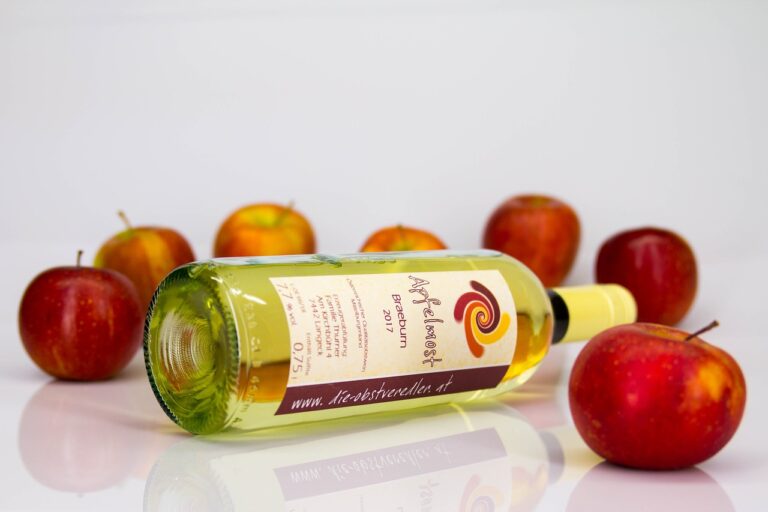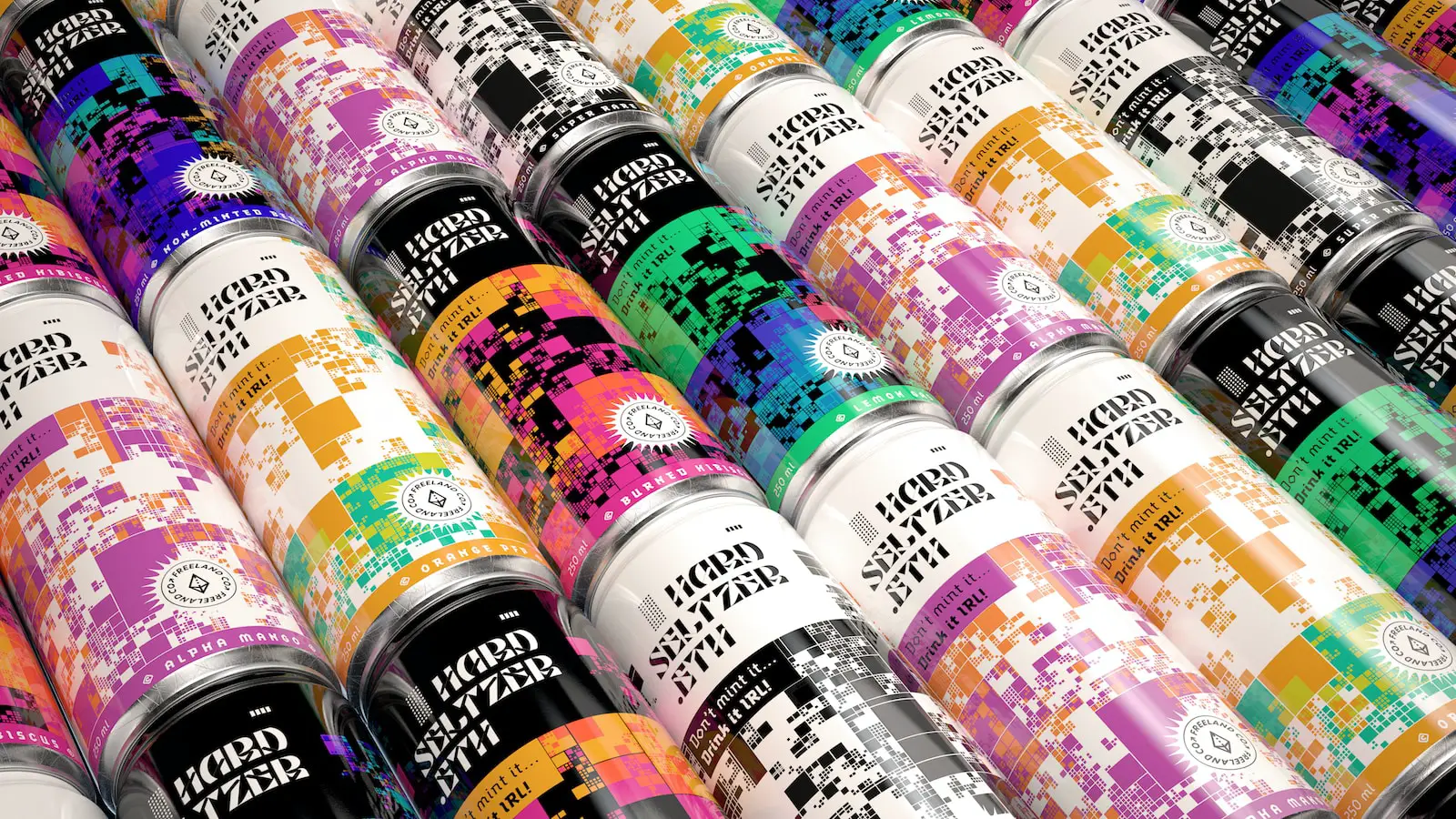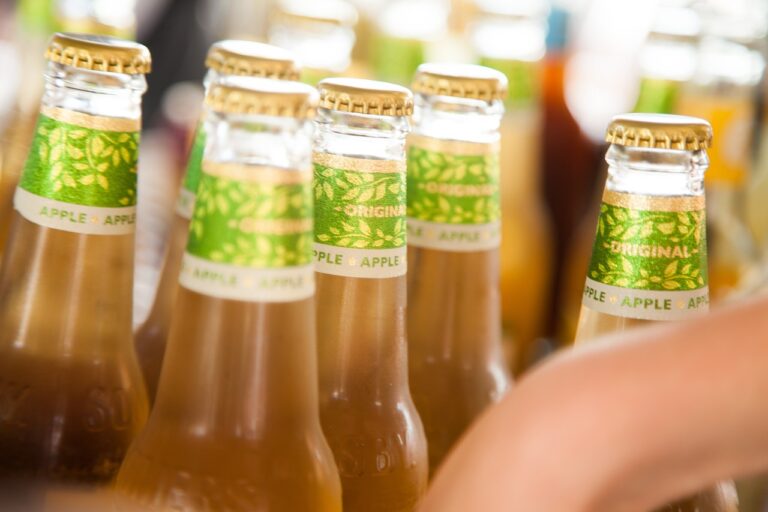Have you ever tried a homebrew beer only to find that it had a metallic taste?
If so, you’re not alone.
Homebrew beer has an unfortunate tendency to sometimes have an off-putting metallic taste.
But don’t worry – you haven’t ruined your brewing equipment.
There are several common explanations for why your home-brewed beer might have a metallic taste.
What Causes the Metallic Taste in Homebrew Beer?
The metallic, tinny taste in homebrew beer can be caused by a few things, and this article will help you understand the causes and how to avoid them.
First, let’s talk about oxidation.
All beers are susceptible to some level of oxidation, which can occur when beer is exposed to oxygen either during brewing or after bottling—it basically means that the beer has been overly exposed to air.
Oxidation affects the flavor of your homebrew, making it taste kind of stale with a strong metallic flavor.
This is one of the most common causes of metallic-tasting home-brew beer.
Next is sanitization.
When it comes to brewing beer at home, sanitizing your equipment is key in preventing bacteria and fungi from infecting your brew and making it taste off.
However, if the sanitizer used is too concentrated or left on too long, it can leave a metallic taste in your beer as well.
Finally, trace metals can also affect the taste of your homebrew beer if they come into contact with it while brewing or during storage.
Common metals like copper and iron can react with compounds found in beer, imparting a subtle but unpleasant metallic flavor (including notes of pennies).
Common Sources of Metal Contamination in Homebrew Beer
If you haven’t already figured out why your homebrew beer has a metallic taste, it might be because of metal contamination.
Sounds scary, but don’t worry!
Metal contamination isn’t always bad—it’s just something you have to watch out for during the brewing process.
In most cases, metal contamination can give your homebrew beer an unpleasant metallic flavor and make it unsafe to drink.
But how does this happen? Here are some common sources of metal contamination in homebrew beer:
Brewing equipment
Brewing equipment is often made of metal, so if your tools and tanks aren’t properly sanitized and rinsed before brewing, they can introduce small amounts of metal into the wort (the sweet liquid created during the mashing stage).
Minerals in the water
Tap water typically contains trace amounts of minerals like iron.
If the concentration of iron is high, it can give your brew a metallic taste.
To prevent this from happening, make sure to use filtered water or reverse osmosis treated water for all-grain brews.
Aluminum cans or bottles
Aluminum cans and bottles are convenient and popular among homebrewers, but they can also contribute to metal contamination if not handled carefully.
The good news is that aluminum cans and bottles are easy to avoid by using glass containers instead.
Not only will this eliminate metal contamination, but it will also help keep other chemicals out of your beer.
By being mindful of these sources of metal contamination in homebrew beer, you should be able to enjoy a smooth-tasting brew that doesn’t have any unwanted flavors.
Different Options for Eliminating Metal Off-Flavors
Do you find that your homebrew beer has a metallic aftertaste? You’re not alone! There are a few common factors that can contribute to this off-flavor. Fortunately, there are also a few simple steps you can take to eliminate it.
Homebrew Kits
First and foremost, check the ingredients of the homebrew kit you’re using.
There could be additives in the pre-packaged kits that give the beer its bad taste.
Be sure to look for kits with natural ingredients so you know exactly how your beer tastes and don’t end up with an unpleasant result.
Metallic Equipment
If you’re using stainless steel pots or kegs when brewing, this can also affect the taste of your beer.
Try switching over to copper or plastic pots, which can help reduce any off-flavors due to metals coming into contact with your beer during the brewing process.
Yeast Nutrients
Think about adding yeast nutrients to your brewing process, as this helps create healthier cultures of yeast and keeps them from becoming stressed which can lead to off-flavor metabolites.
Nourishing yeast cells in this way will help create better-tasting brews overall!
Balance pH levels
A pH imbalance can cause certain metallic compounds to oxidize, giving off a bitter smell and flavor in the final product.
Monitoring pH levels throughout fermentation is very important.
Water Quality
Finally, make sure you keep a close eye on the water quality in your brewery—it has a big impact on how oxidized or metallic tasting your beers may be!
If necessary, filters or distillation may be needed depending on the type of water used in the brew.
The Necessary Precautions to Take When Making Homebrew Beer
When making homebrew beer, there are certain necessary precautions you should take to ensure that your beer does not end up with a metallic taste.
First and foremost, it is important to be mindful of the materials used in the brewing process.
Cleanliness
For starters, make sure that everything is kept clean and free from contaminants of any kind.
This includes sanitizing all of your equipment, vessels, and tubing before each use.
Testing and Monitoring
It is also important to stay on top of testing and monitoring your homebrew beer’s pH levels throughout the entire fermentation process.
Too low or too high a pH can cause off-flavors and can make your beer taste metallic.
Conclusion
In conclusion, there are a few possible explanations for why your homebrew beer may have a metallic taste.
It could be the type of metal your brewing equipment is made out of, the type of beer you’re making, or even your water source.
The most important thing is to identify the source of the problem and take steps to fix it.
That could mean using better quality brewing equipment, using filtered water, or experimenting with different ingredients.
With just a few tweaks, you can enjoy a truly delicious homebrew beer that tastes far better than one with metallic flavoring.










